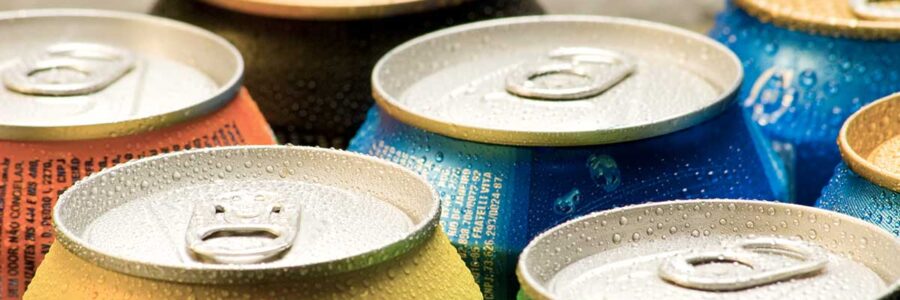The significance of our dietary choices extends beyond food, encompassing the beverages we consume daily. Often underestimated, these drinks can profoundly influence our overall health, particularly our brain function. This article highlights three commonly consumed beverages that may pose risks to brain health, potentially contributing to conditions like Alzheimer’s disease. Understanding the hidden dangers of these drinks allows us to make more informed decisions that favor our cognitive well-being.
Rethinking Diet Soda: The Artificial Sweetener Dilemma
Diet sodas, popular for their zero-calorie appeal, rely heavily on artificial sweeteners such as aspartame to replace sugar. Though they may seem like a smart choice for those looking to reduce calorie intake, the implications for brain health are concerning. Studies have linked aspartame and other artificial sweeteners to an increased risk of diabetes, a condition that has a notable correlation with Alzheimer’s disease, sometimes referred to as “type 3 diabetes” due to its connection with sugar metabolism and brain function.[1][2][3] The insulin resistance triggered by these sweeteners may, paradoxically, set the stage for severe brain health complications over time.
Alcohol: A Cultural Staple with Hidden Costs
Alcohol’s pervasive presence in social and cultural settings masks its potential risks, especially with excessive consumption. Its detrimental effects span from disrupting the gut-brain axis, a critical communication pathway between the gastrointestinal system and the brain, to compromising liver function and impairing cognitive processes.[4][5][6] Alcohol can also disturb sleep patterns, undermining the brain’s ability to rejuvenate and remove toxins, thereby elevating the risk of cognitive decline and Alzheimer’s disease.[7][8] The balance between moderate enjoyment and the adverse impacts of alcohol on brain health is delicate and warrants careful consideration.
The Deceptive Nature of Sports and Energy Drinks
The allure of sports and energy drinks as energy-boosting solutions, especially among the youth, belies their potential harm to brain health. The primary concern lies in their high sugar content, which can precipitate blood sugar spikes and contribute to insulin resistance, a known risk factor for Alzheimer’s disease.[9] Furthermore, the artificial sweeteners in many of these beverages carry their own risks, challenging the notion of these drinks as benign or beneficial for long-term brain health.[1][2]
Acknowledging the Cumulative Impact
The relationship between the consumption of diet sodas, alcohol, and sports/energy drinks and the risk of Alzheimer’s and cognitive decline is not merely speculative. A growing body of research underscores the cognitive risks associated with the ingredients and additives in these beverages. From fostering insulin resistance to impairing liver and gut function, the effects are complex and cumulative, potentially setting the stage for dementia and other cognitive disorders.
Embracing Healthier Choices
In light of these findings, shifting towards healthier beverage options is imperative. Water remains the unparalleled choice for hydration, while herbal teas and natural fruit juices (in moderation) offer beneficial nutrients without the adverse effects associated with the beverages discussed. However, safeguarding brain health extends beyond drink selection, encompassing a holistic approach that includes regular physical activity, a nutrient-rich diet, adequate sleep, and stress management practices.
In Conclusion
The link between beverage choices and brain health is profound and warrants careful attention. While diet sodas, alcohol, and sports/energy drinks may offer short-term satisfaction or convenience, their long-term implications for cognitive health are significant. By opting for healthier alternatives and embracing a lifestyle that supports brain function, we can better protect ourselves against the risk of Alzheimer’s and maintain our cognitive vitality for years to come.
References:
- Czarnecka, Kamila et al. “Aspartame-True or False? Narrative Review of Safety Analysis of General Use in Products.” Nutrients vol. 13,6 1957. 7 Jun. 2021, doi:10.3390/nu13061957
- Mathur, Kushagra, et al. “Effect of artificial sweeteners on insulin resistance among type-2 diabetes mellitus patients.” Journal of family medicine and primary care vol. 9,1 69-71. 28 Jan. 2020, doi:10.4103/jfmpc.jfmpc_329_19
- De la Monte, Suzanne M, and Jack R Wands. “Alzheimer’s disease is type 3 diabetes-evidence reviewed.” Journal of diabetes science and technology vol. 2,6 (2008): 1101-13. doi:10.1177/193229680800200619
- Gorky, Jonathan, and James Schwaber. “The role of the gut-brain axis in alcohol use disorders.” Progress in neuro-psychopharmacology & biological psychiatry vol. 65 (2016): 234-41. doi:10.1016/j.pnpbp.2015.06.013
- Nguyen, Henry H, and Mark


